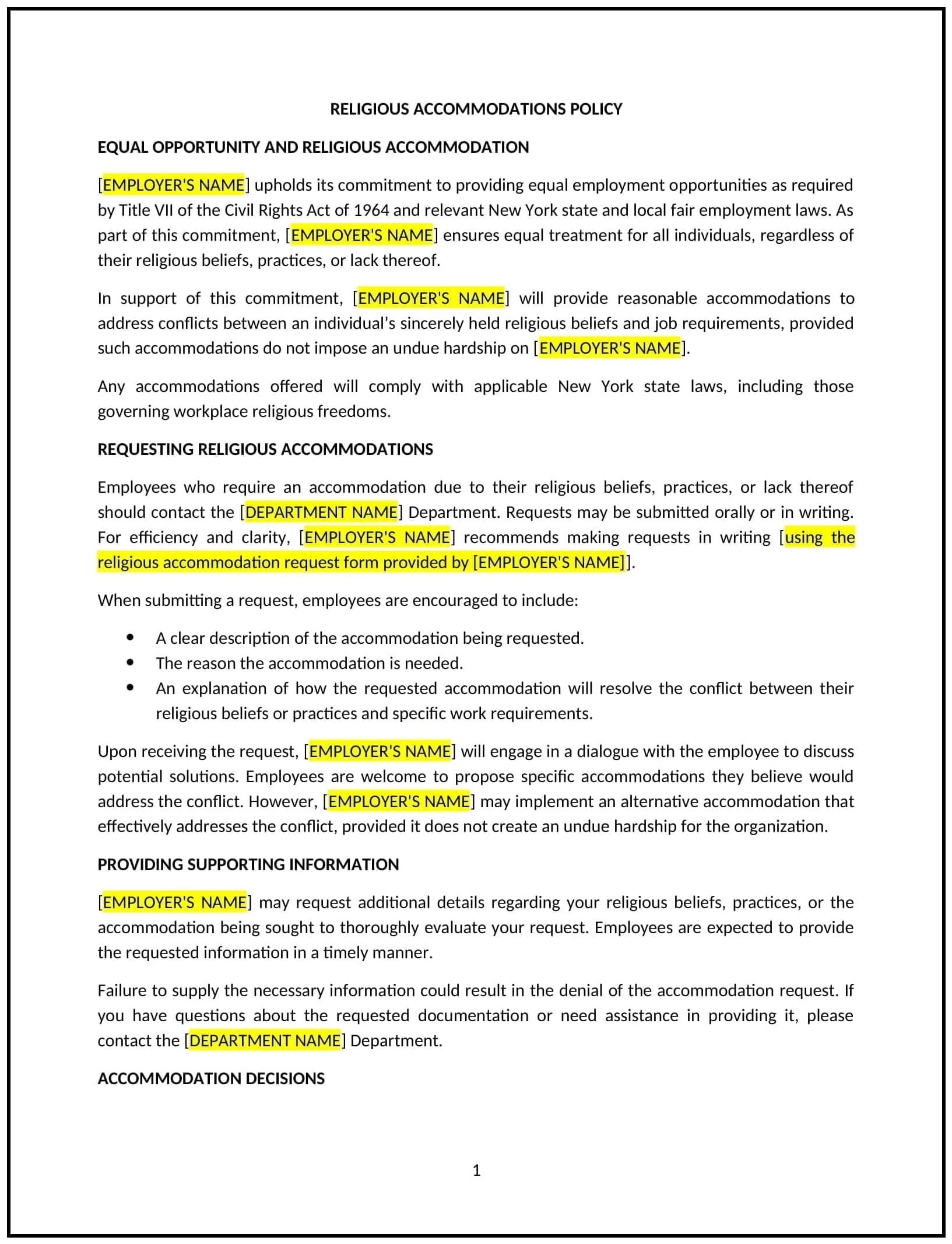Got contracts to review? While you're here for policies, let Cobrief make contract review effortless—start your free review now.

Customize this template for free
Religious accommodations policy (New York)
This religious accommodations policy is designed to help New York businesses establish clear guidelines for providing accommodations to employees based on their religious practices and beliefs. Whether businesses are addressing time-off requests for religious observances or accommodating workplace adjustments, this template provides a structured approach to supporting religious diversity while maintaining operational efficiency.
By adopting this template, businesses can foster an inclusive work environment, comply with applicable laws, and promote respect for employees' religious needs.
How to use this religious accommodations policy (New York)
- Define religious accommodations: Clearly outline what constitutes religious accommodations, including time off for religious holidays, flexible scheduling, dress code exceptions, or adjustments to workplace practices.
- Establish request procedures: Provide a clear process for employees to request religious accommodations, including timelines, required documentation, and points of contact.
- Evaluate accommodation requests: Outline how businesses will assess accommodation requests, balancing employee needs with operational requirements and ensuring that accommodations do not impose an undue hardship on the business.
- Address confidentiality: Reinforce the importance of maintaining confidentiality regarding employees' religious beliefs and accommodation requests.
- Monitor compliance: Ensure that all accommodations comply with applicable laws, including federal and New York state regulations regarding religious discrimination and workplace accommodations.
Benefits of using a religious accommodations policy (New York)
This policy offers several benefits for New York businesses:
- Promotes inclusivity: Clear guidelines help foster a respectful and inclusive workplace where employees’ religious beliefs are recognized and supported.
- Reduces discrimination risks: Providing a formal process for requesting religious accommodations helps businesses avoid potential discrimination claims and legal issues.
- Enhances employee engagement: Supporting employees’ religious practices increases job satisfaction and strengthens employee loyalty.
- Ensures legal compliance: Adopting a religious accommodations policy helps businesses comply with the federal Civil Rights Act and New York State Human Rights Law.
- Improves workplace culture: Accommodating religious practices promotes diversity, creating a more positive and collaborative work environment.
Tips for using this religious accommodations policy (New York)
- Communicate clearly: Ensure employees are aware of the policy through onboarding, employee handbooks, and regular communications, especially before major religious holidays.
- Train managers: Educate managers on how to handle accommodation requests respectfully, and provide guidance on assessing potential hardships and finding reasonable solutions.
- Track requests: Keep a record of accommodation requests and the actions taken to fulfill them, ensuring consistency and transparency.
- Be flexible: While maintaining business operations, try to accommodate employees’ religious practices as reasonably as possible without undue hardship to the company.
- Review regularly: Update the policy to reflect any changes in religious observances, New York state laws, or business practices.